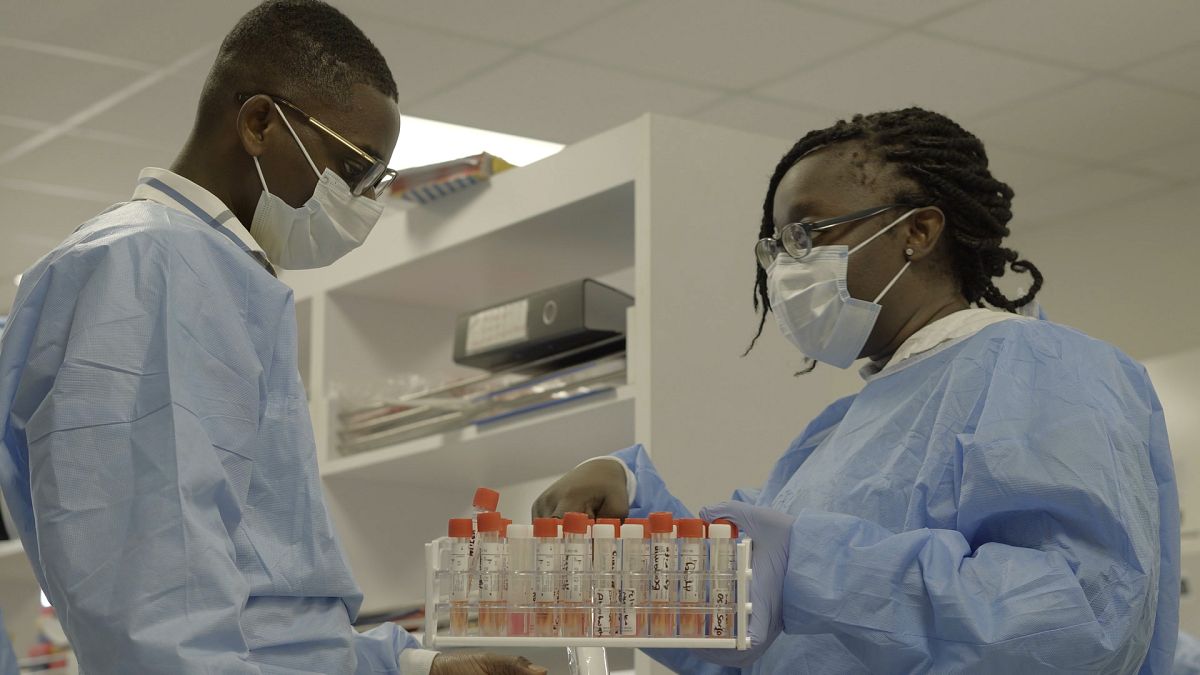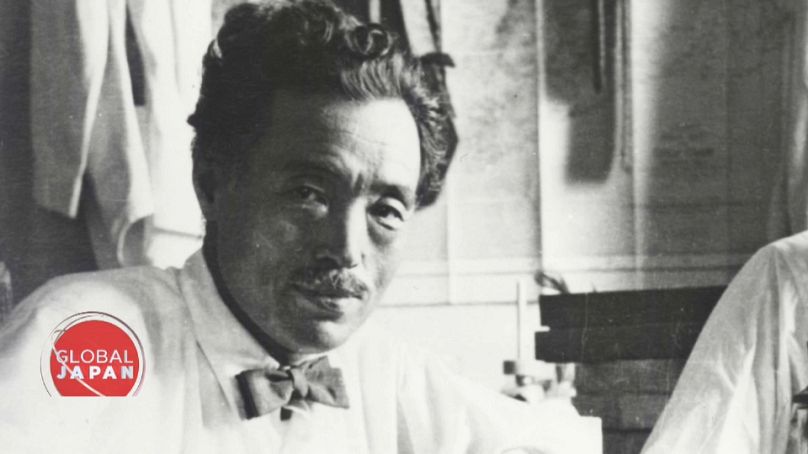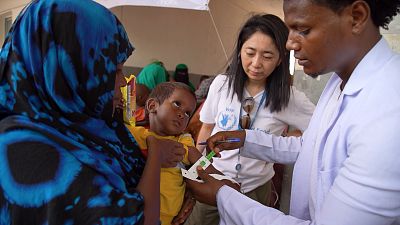The Ghana-based Noguchi Memorial Institute for Medical Research, established more than four decades ago, is yet again stepping up its efforts to fight disease in West Africa as part of its international collaborative research programme.
Fighting disease is very much a long-term global effort and requires co-operation around the world.
Emblematic of that are developments at a long-established Japanese-built institute in Ghana, which is further enhancing its role by scaling up a new Advanced Research Laboratory there.
The Noguchi Memorial Institute for Medical Research was founded in Accra, the Ghanaian capital, in 1979. It's named after Dr. Noguchi Hideyo who sought a cure for yellow fever during the 1920s, but died of the disease in what is now the modern state of Ghana in 1928.
Today, its international team battles on across West Africa.
The Institute added the new laboratory last year, expanding its work on epidemiology, immunology, virology and bacteriology. The laboratory is now futher developing to play a key role in the region by offering state-of-the-art capacity in research.
Professor Abraham Anang, the Noguchi Institute's Director, says the facility will now play an even greater part in the region, in terms of combating disease:
"Now we have the third-country training, which is training laboratory scientists in West Africa post-Ebola, to prepare the West African region to be able to respond with early detection.
That expertise also includes Japanese management methods, including the concept of Kaizen and 5S, learnt by Ghanaian researchers while training in Tokyo. Kaizen - or ''change for the better'' in Japanese - refers to business activities that seek to continuously improve in all aspects and to involve employees from all levels of an organisation. Kaizen can also apply to processes, such as purchasing and logistics, that cross organisational boundaries into the supply chain. With Kaizen, any employees can propose innovations.
5S methodology combines five Japanese words which have been translated as Sort, Straighten, Shine, Standardise and Sustain. They determine how to organise a work space to maximise efficiency and effectiveness, the maintainance of that arrangement and also sustaining the set-up.
Christopher Zaab-Yen Abana, Chief Research Assistant at the Noguchi Memorial's Virology Department, says the use of these methodologies has been invaluable - especially given the recent coronavirus pandemic:
"It correctly helps you to sort out and set out how the lab working space should be. And most importantly in this Covid-19 season, this approach has helped us to match the thousands of samples, so that we can process them.
"It has also helped us to make sure that we're able to diagnose other related infectious diseases, like influenza, like yellow fever, and then Covid-19."
Hideyo Noguchi died of yellow fever 92 years ago but his successors have been continuing the work since the foundation of the Noguchi Memorial Institute for Medical Research.
Dr Hayashi Takaya, a virologist from Tokyo Medical and Dental University, has been working at the Institute for three years. His work in Ghana is via the Japan Program for Infectious Diseases Research and Infrastructure.
Dr Hayashi says the progress that they've made against certain diseases underlines the invaluable collaborative work that the Institute facilitates:
"My Ghanaian colleague helped me to collect samples and that is very good cooperation to move forward our research in Ghana. We successfully isolated the Ghanaian Dengue Fever virus.
"Capacity-building is one of the approaches that the Japanese collaboration research projects have taken and it includes the local training of Ghanaian researchers."
41 years after its foundation, the Noguchi Memorial Institute for Medical Research is continuing to improve and develop not just as an example of Japanese and African cooperation, but of the global endeavours to combat disease.





